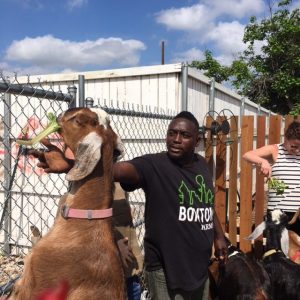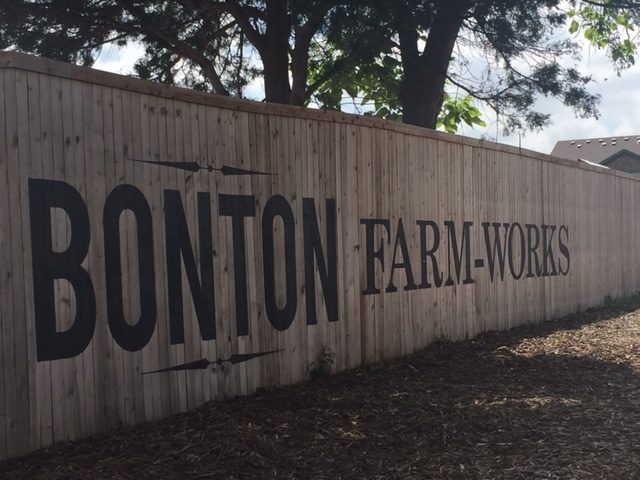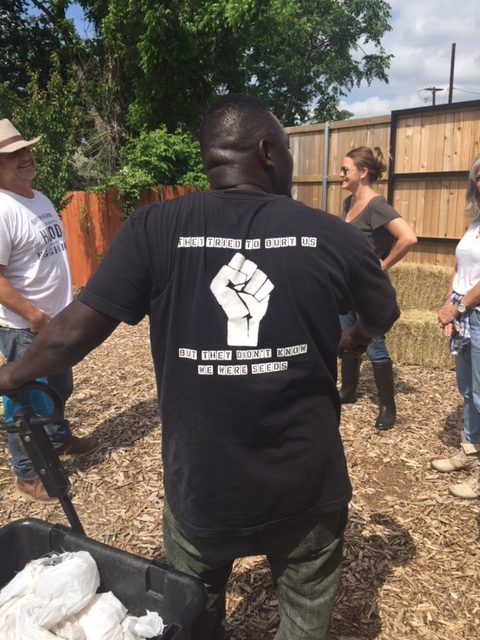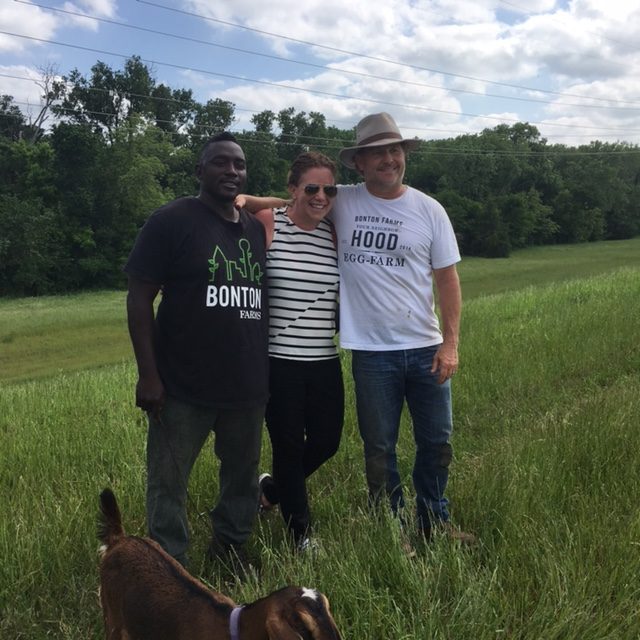I was in Dallas a couple weeks ago and stopped in at Bonton Farms, an urban farm meant to restore health, create jobs and ignite hope in South Dallas.
It’s in a pretty rough neighborhood. Up until 1997, when the city flooded, they actually closed gates around the neighborhood to keep the flood waters from other neighborhoods. You can imagine what that meant to the people who lived there, that their own city would prevent them from evacuating and deem their lives, homes and possessions as expendable.
The city of Dallas has since built a levee and no longer use the flood gates. The residents of Bonton, however, are still deeply impacted by living in a food desert. Sixty-three percent of residents lack personal transportation, with the nearest grocery store a 3-hour round-trip bus ride away for some people in the area. Many residents rely on the local liquor stores for their groceries. Bonton’s cardiovascular disease rate is 54% higher than that of the city of Dallas. Its diabetes rate is 45% higher; stroke 61% higher; cancer 58% higher.
 Daron Babcock moved into the neighborhood to address the issues of the food desert. He built a garden, and invited the kids and neighbors to volunteer and take home whatever they wanted. This grew into the larger Bonton Farm Works plot that I visited. Recently, a local businessman donated 18 acres nearby to grow even more.
Daron Babcock moved into the neighborhood to address the issues of the food desert. He built a garden, and invited the kids and neighbors to volunteer and take home whatever they wanted. This grew into the larger Bonton Farm Works plot that I visited. Recently, a local businessman donated 18 acres nearby to grow even more.
The farm reminds me of why Farm Aid keeps at it, day after day. Why our artists are inspiring corners of the country that I may never know about.
Daron asked everyone what the neighborhood needed, and jobs was the overwhelming answer. With Bonton Farm, the neighborhood has a chance to change their story and move on, while healing their souls with the soil and learning new skills. They’re selling goat cheese, honey, eggs, produce, all while providing good food for their neighbors, jobs and a sense of pride for the whole neighborhood. This farm is theirs.
On the day that I visited, Patrick, the farm manager, was wearing a t-shirt with the Mexican proverb, ‘They tried to bury us, but they didn’t know we were seeds.’ I don’t think I’ve witnessed a better use of the phrase than Bonton Farms.
I was walking away at the end of the tour, crying a little at the impact of the visit, and Patrick (convicted felon turned farm manager) began singing John Mellencamp at the top of his lungs…”Little ditty, about Jack and Diane…” I laughed and shook my head.
The farm reminds me of why Farm Aid keeps at it, day after day. How our artists are inspiring corners of the country that I may never know about. I left feeling thankful for knowing these people and grateful for what they are doing for their neighborhood.





